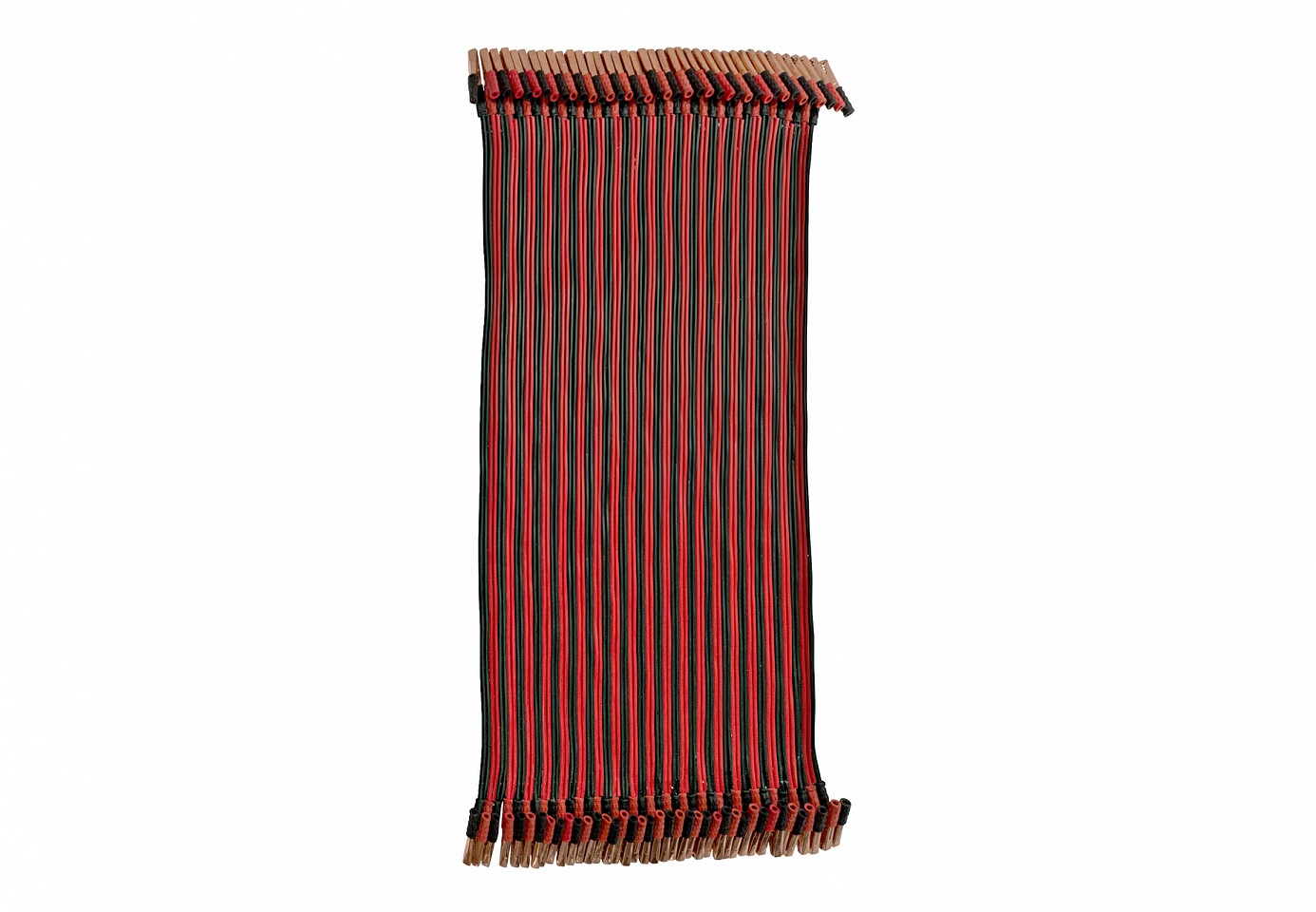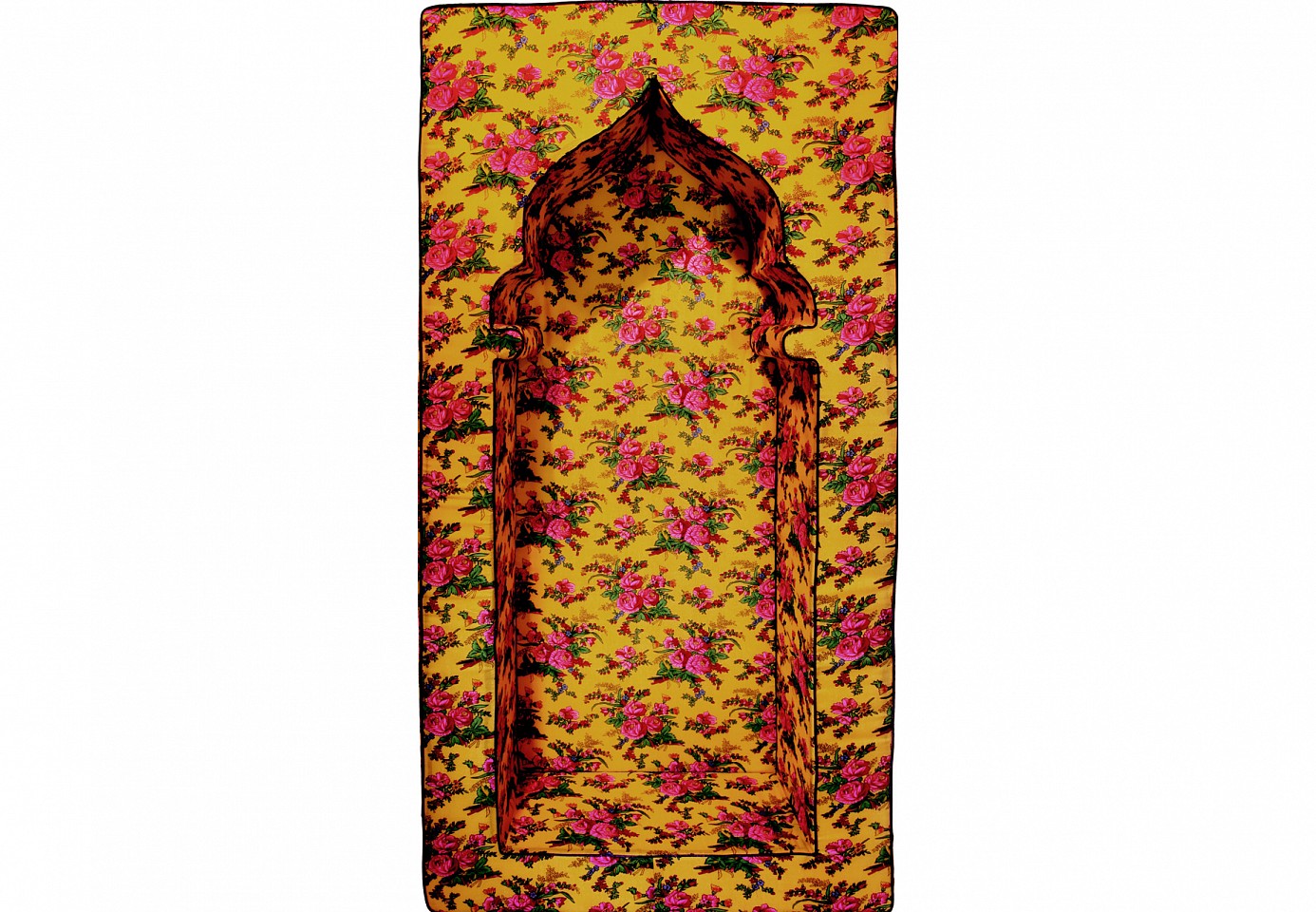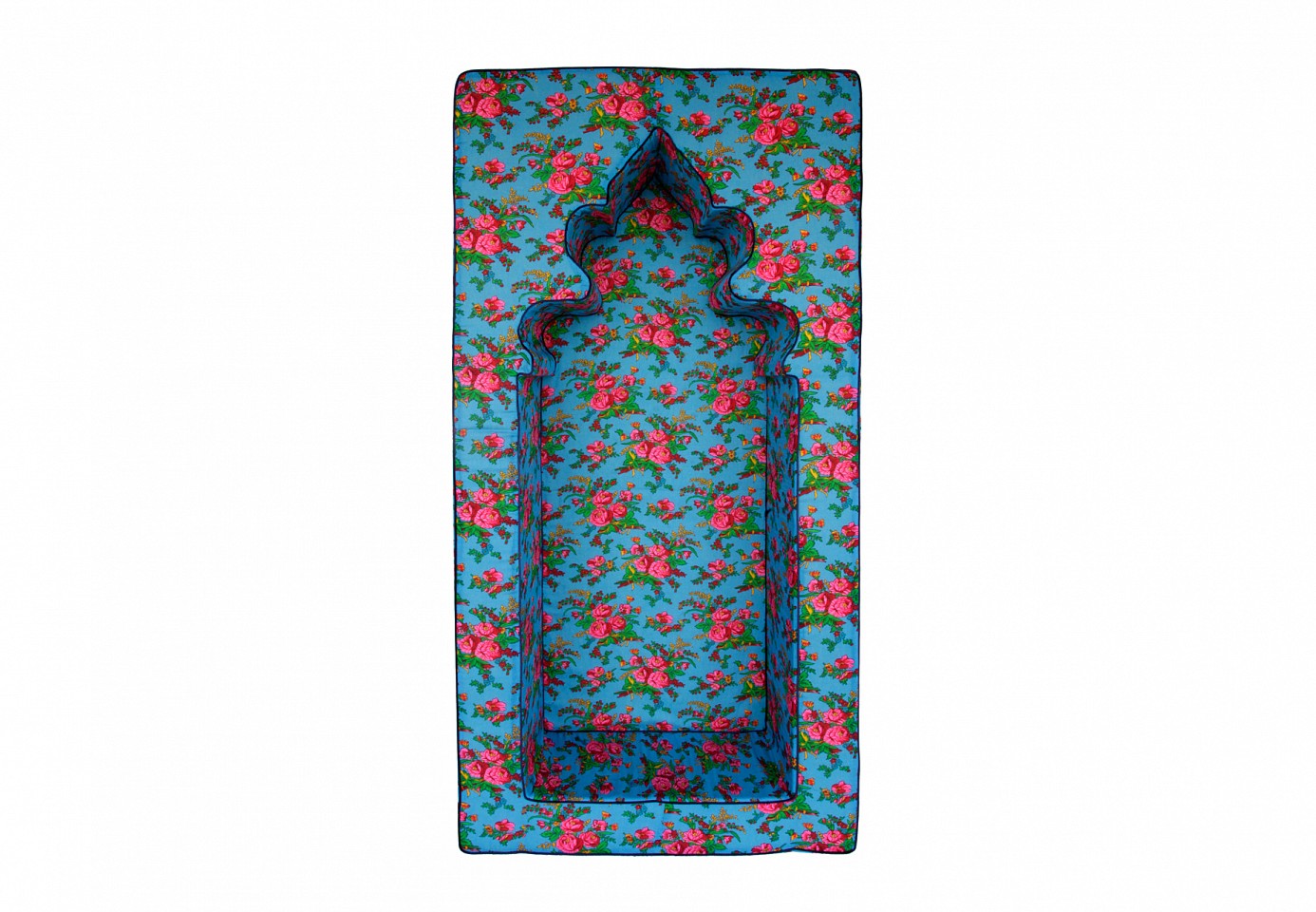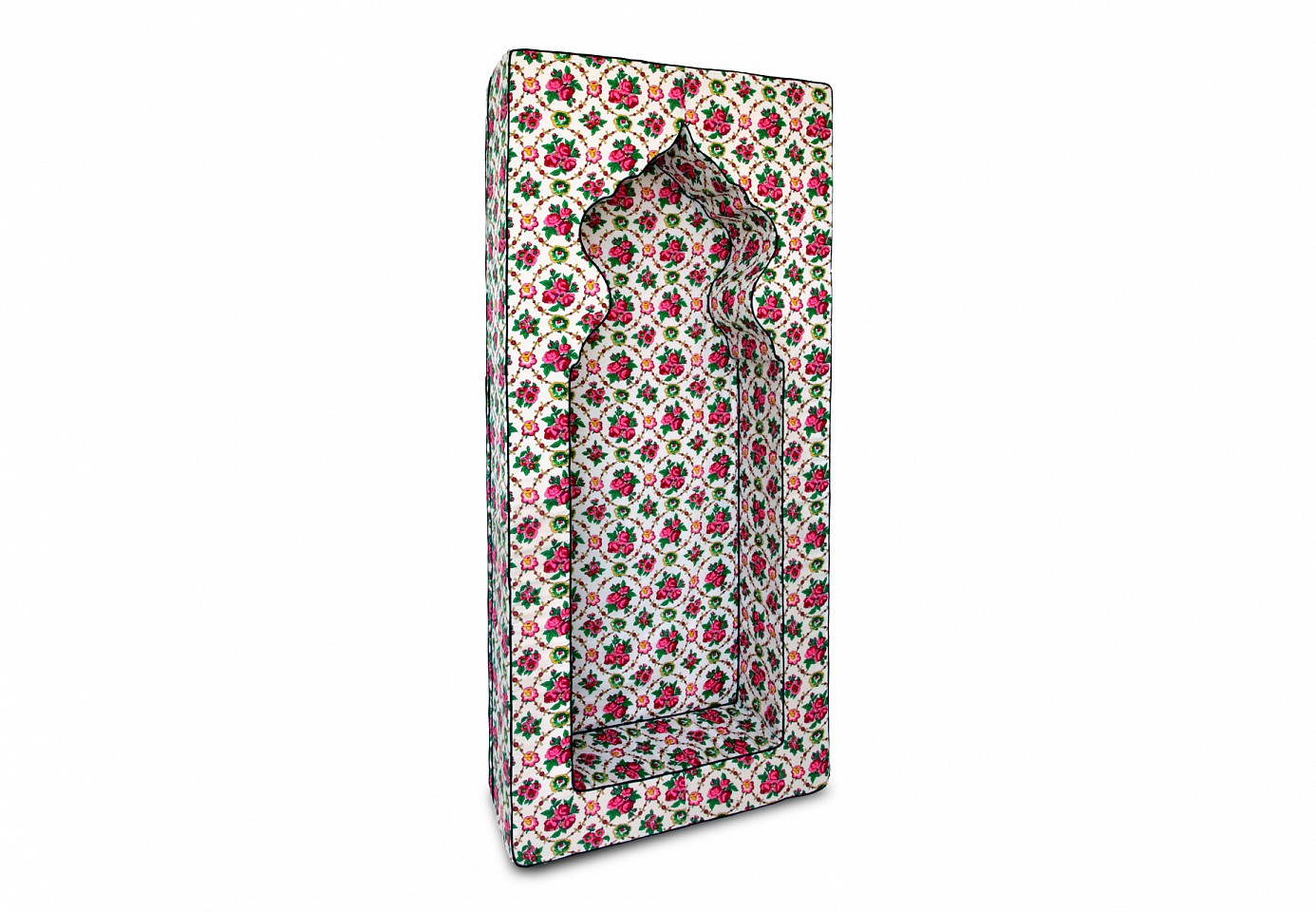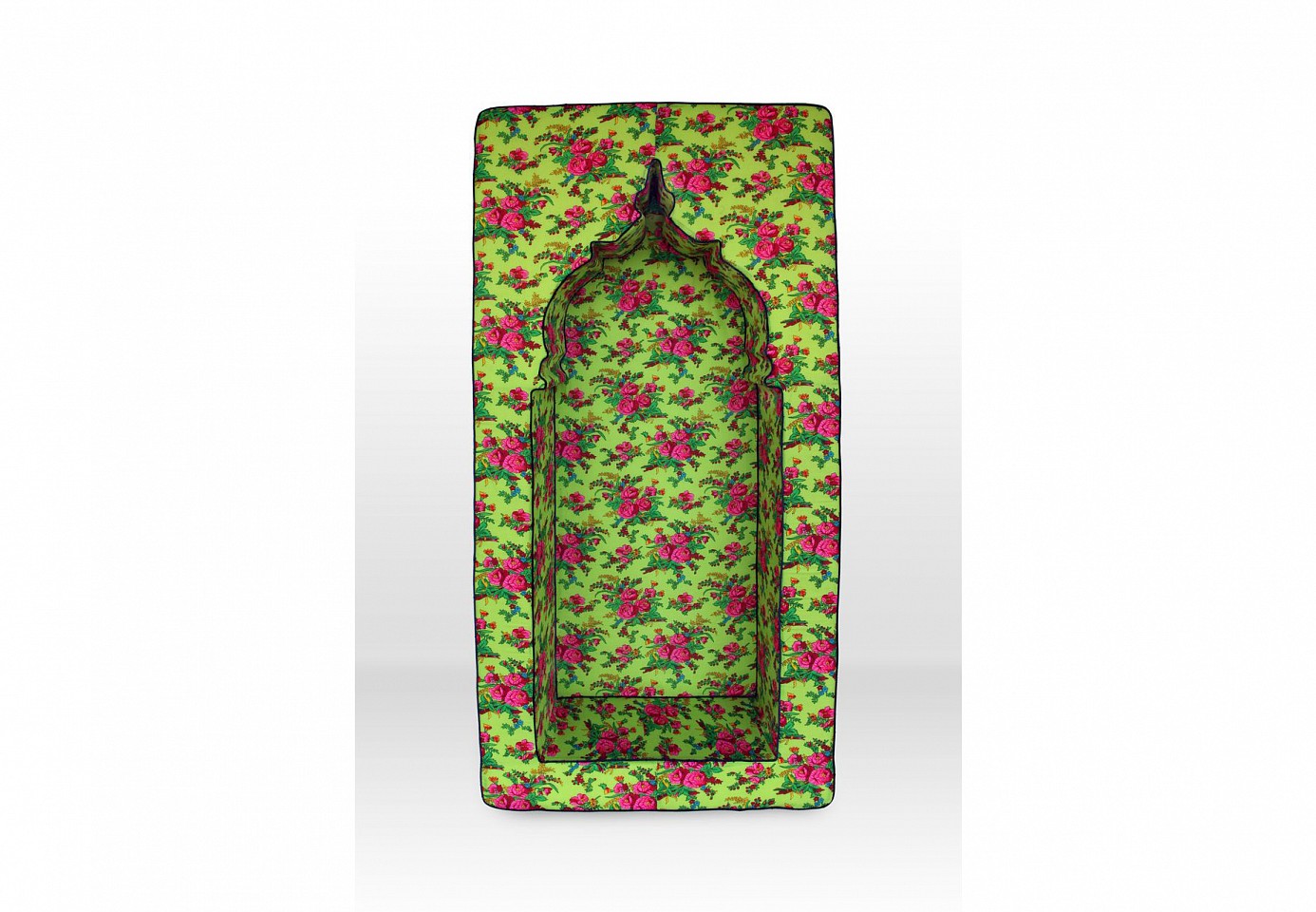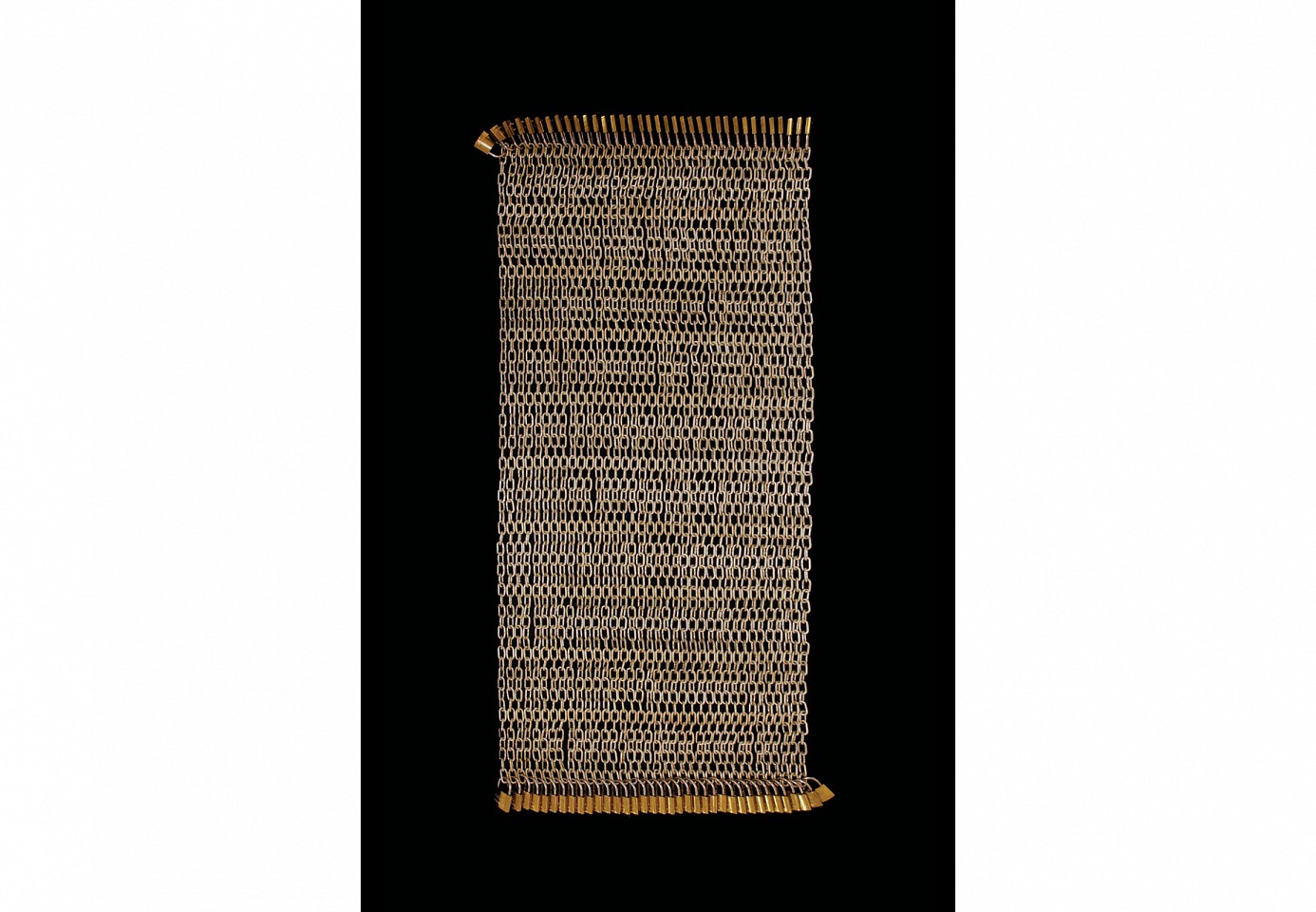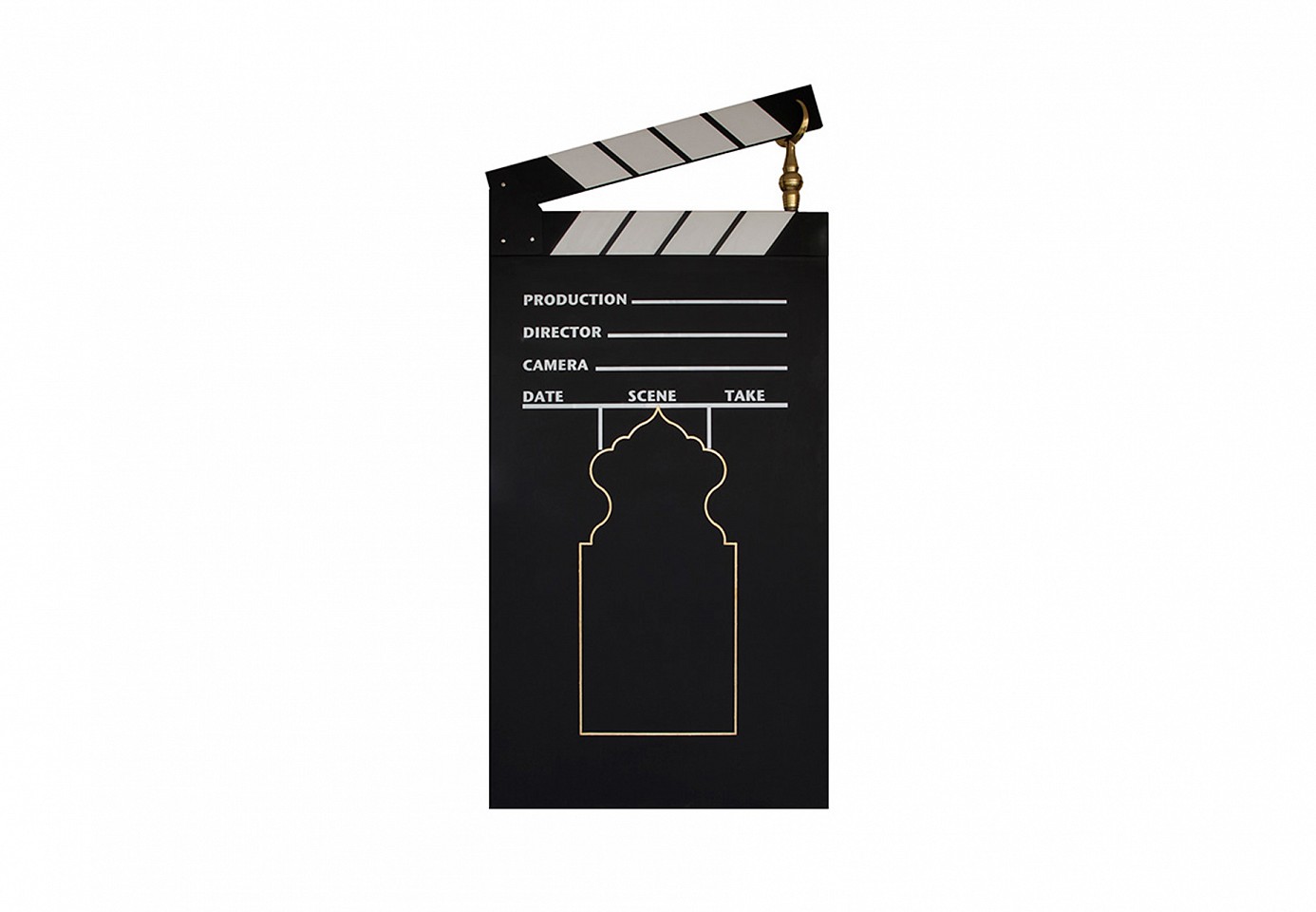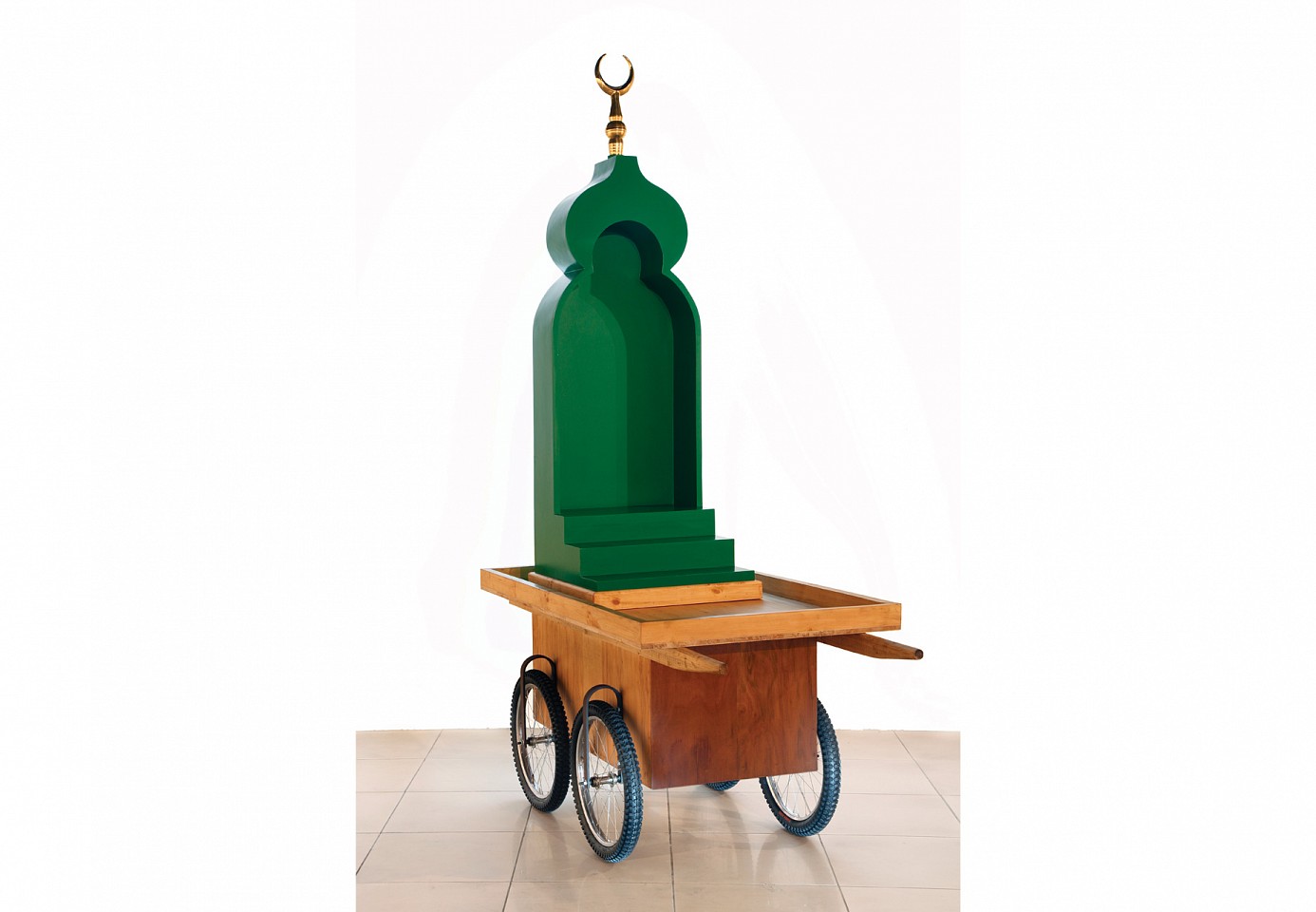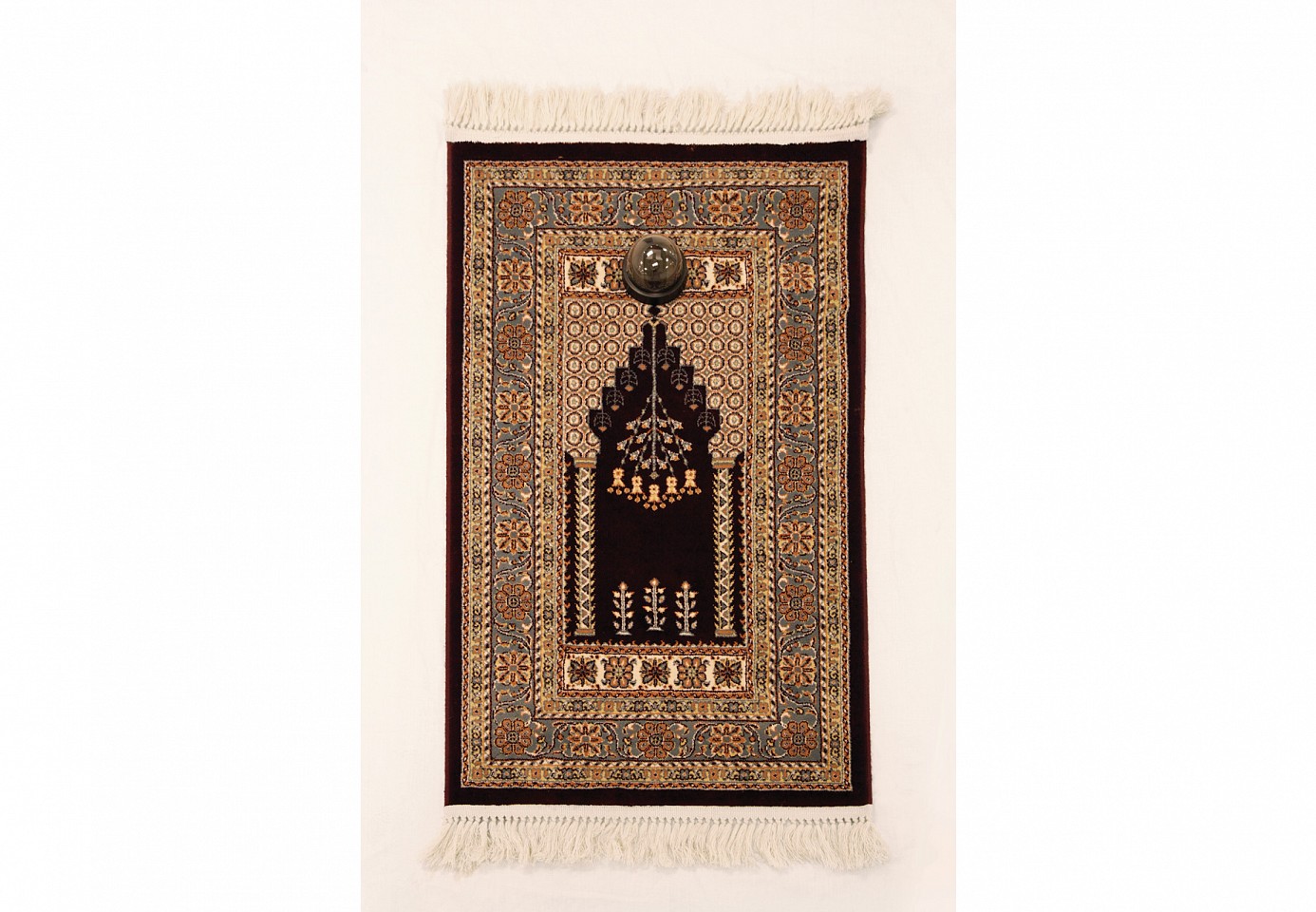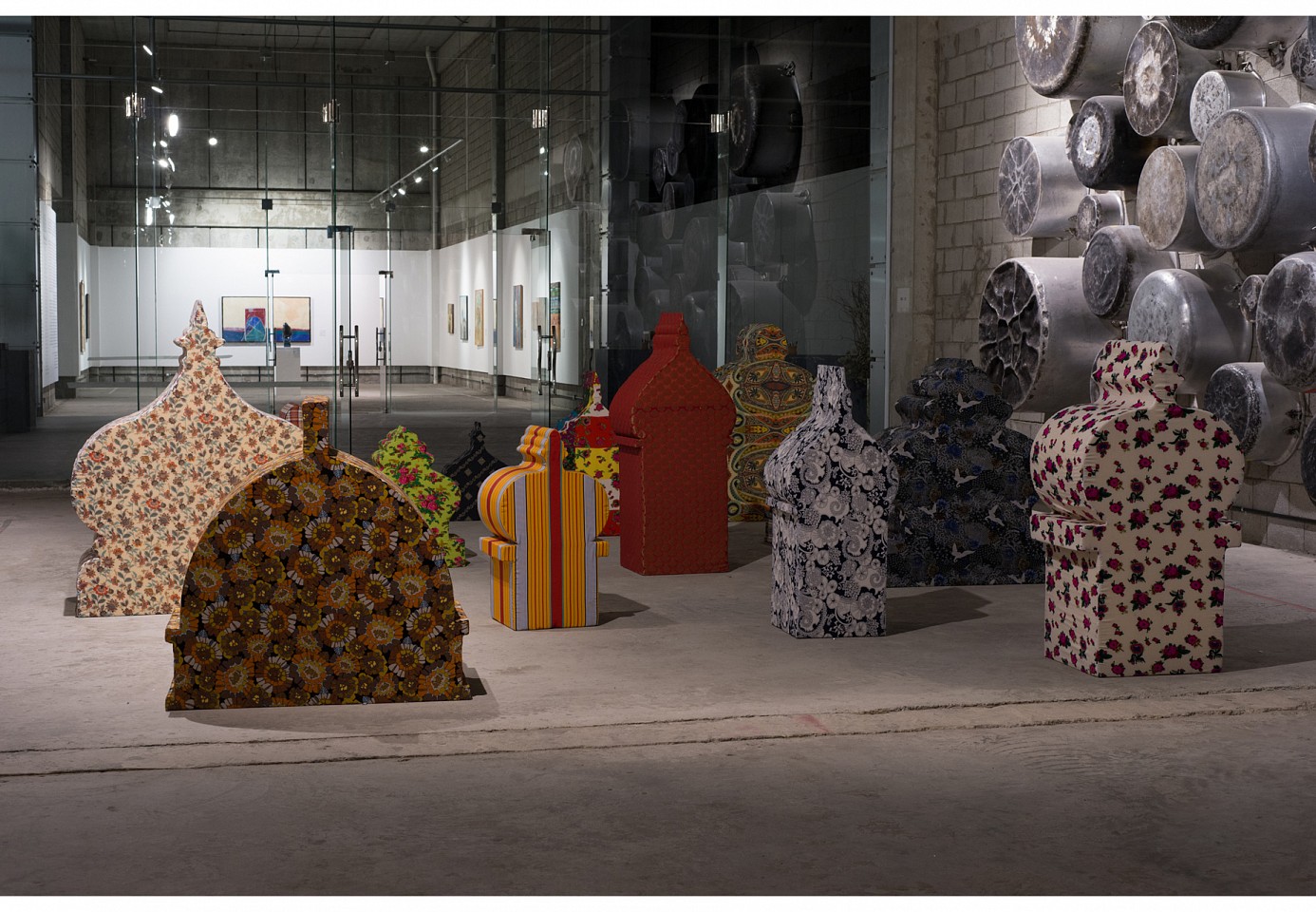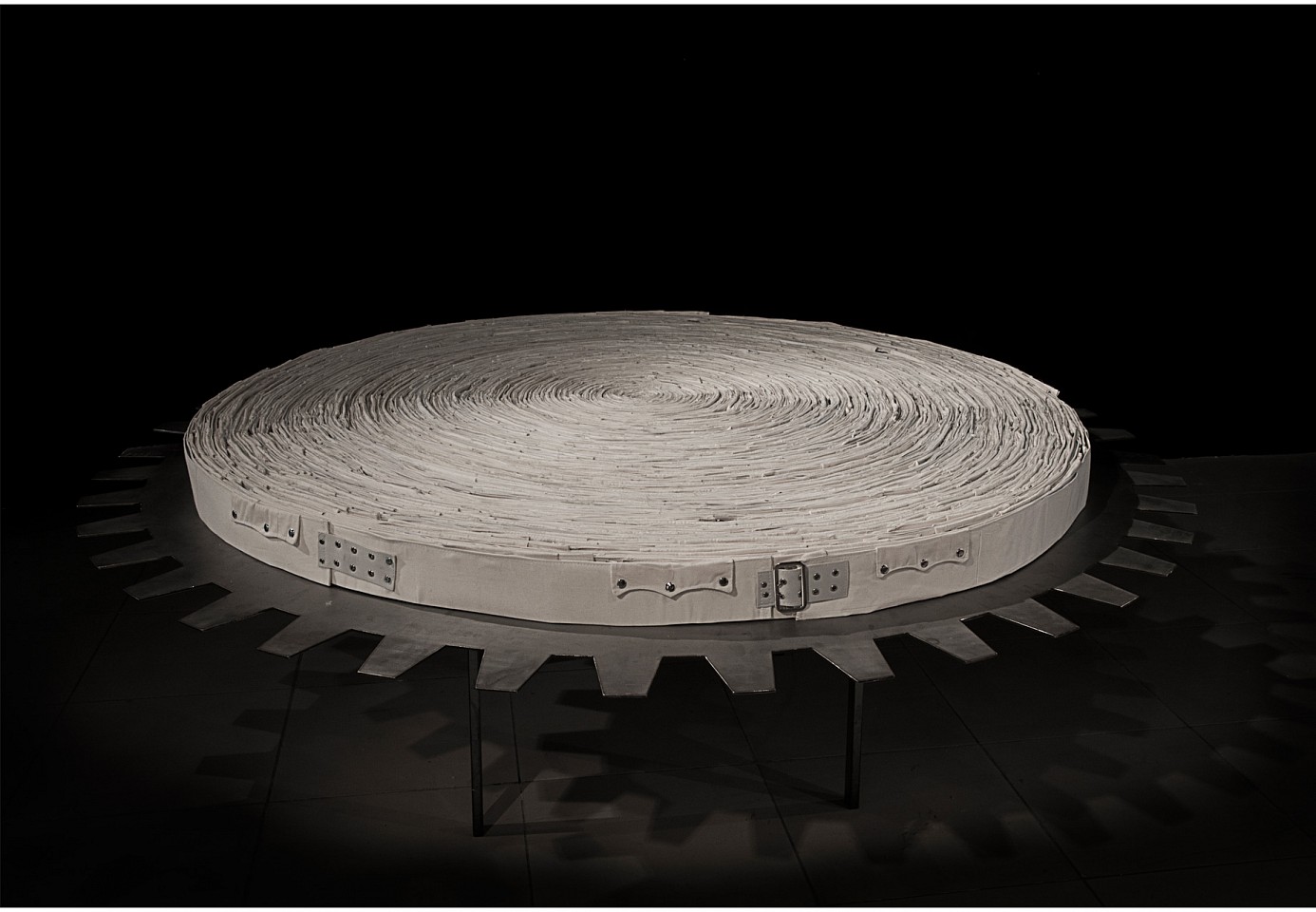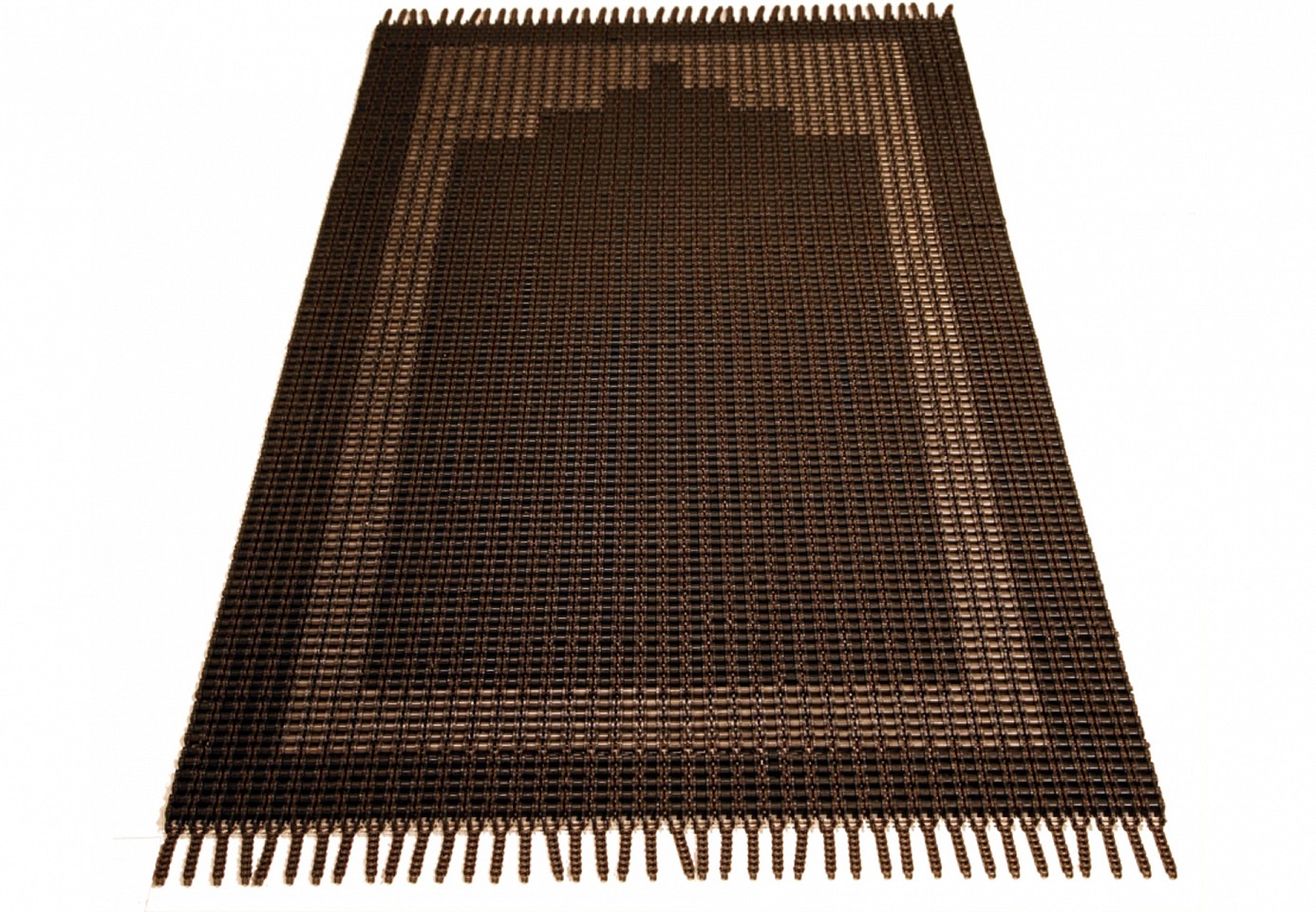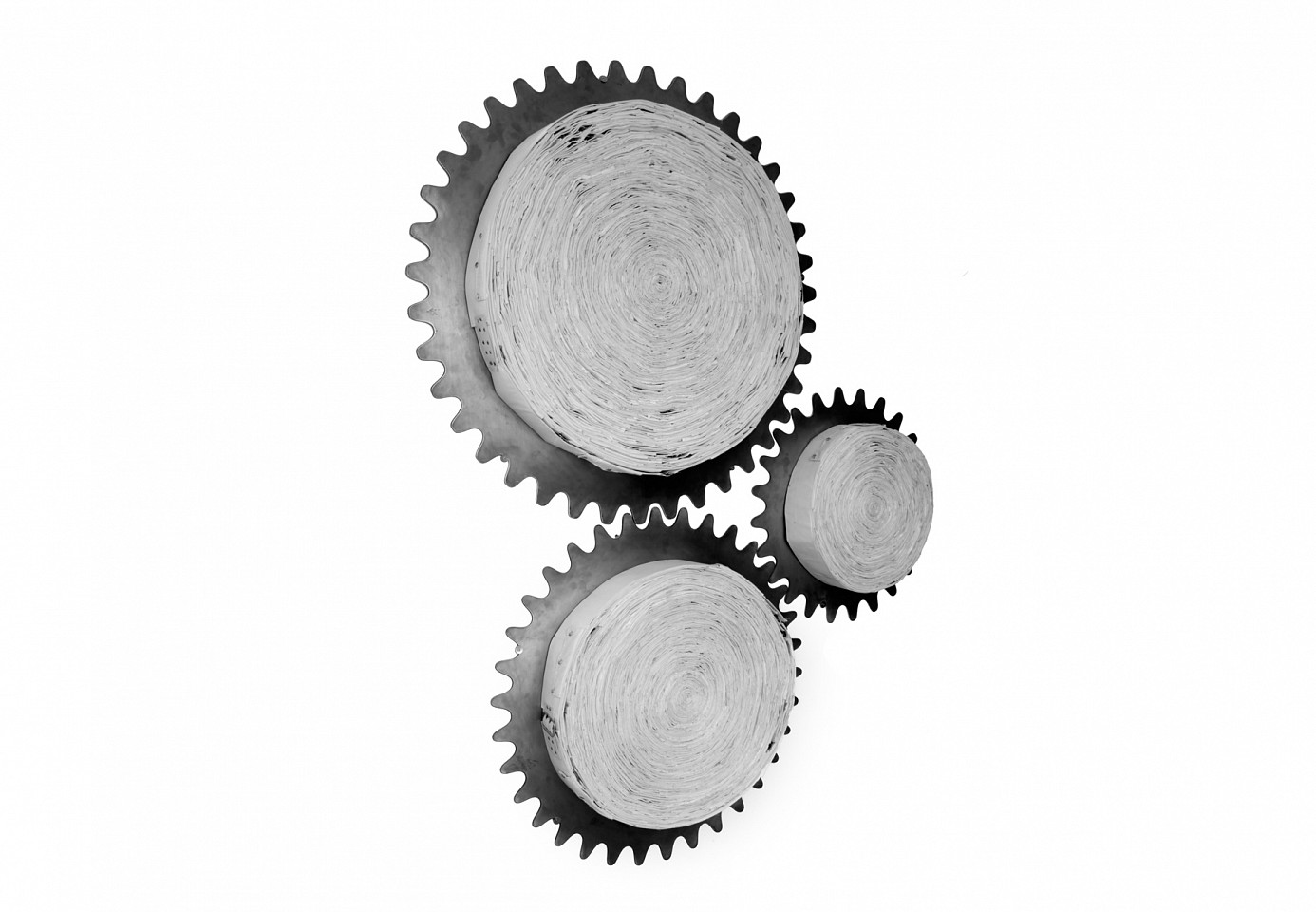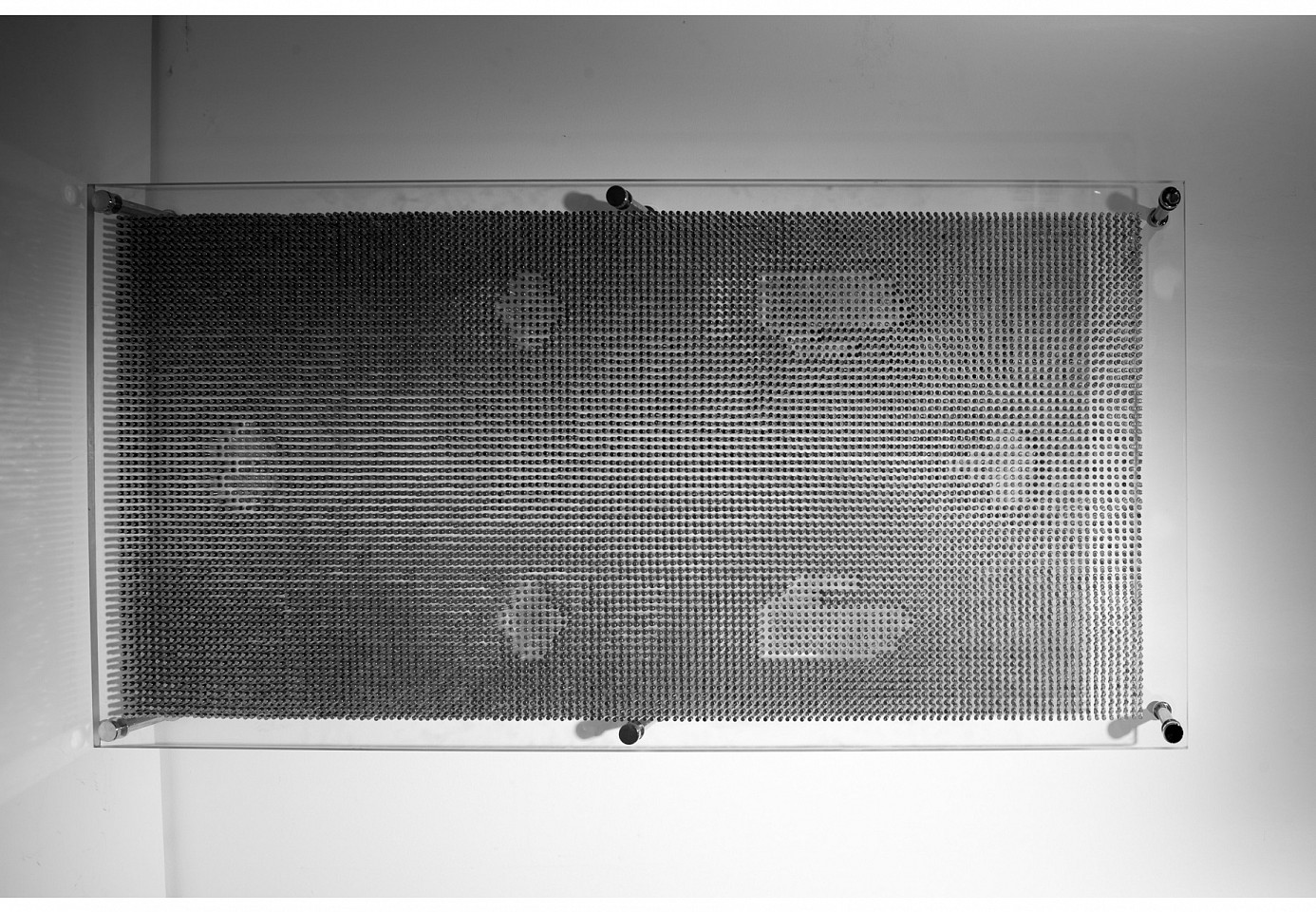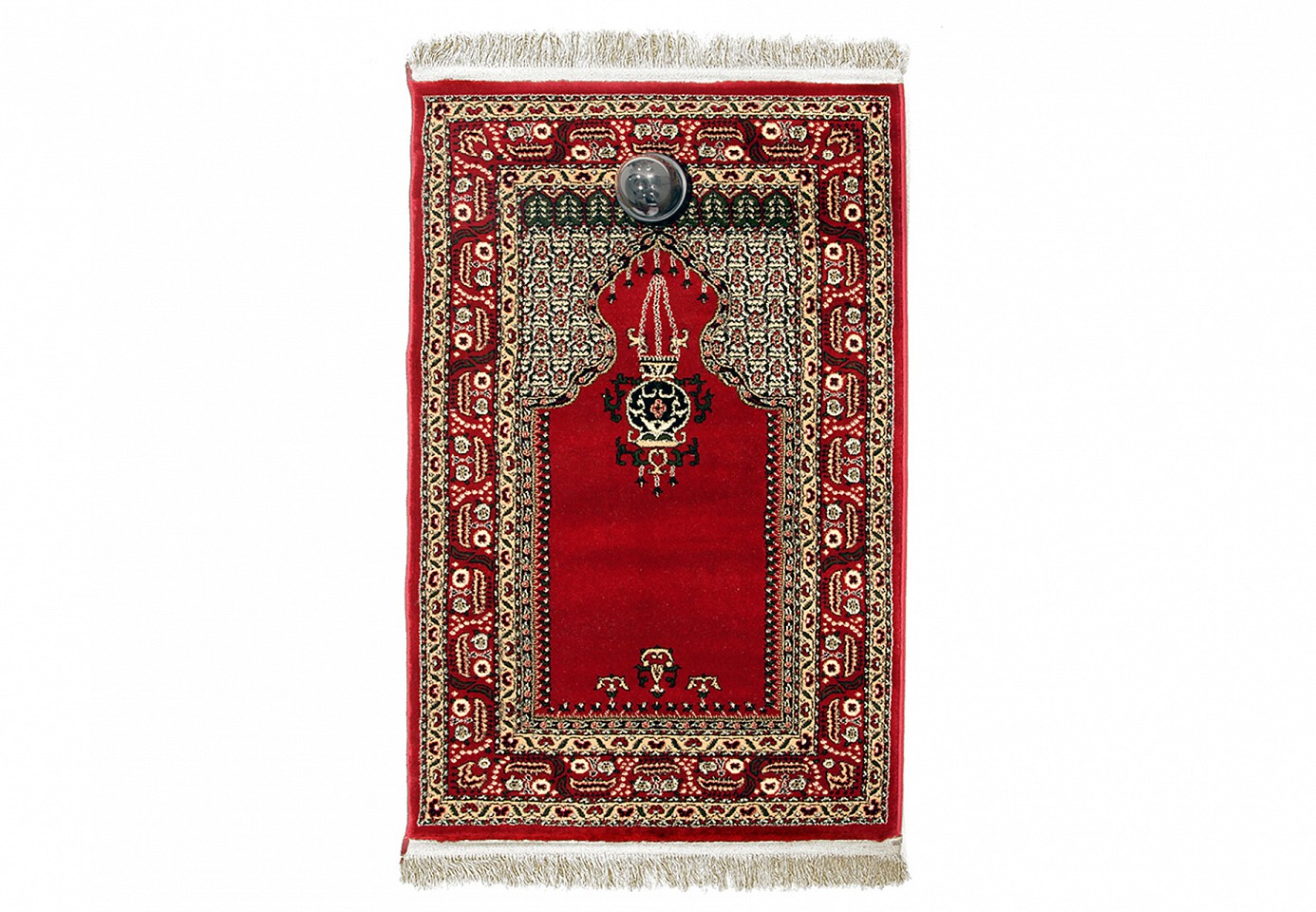Musaed Al Hulis
Musaed Al Hulis
Relief Us With It, O Bilal, 2014
Carpet out of car jumper cables
180 x 106 cm (70 13/16 x 41 11/16 in.)
Edition of 3
MAH0029
Musaed Al Hulis
The Sleep of the Wicked, 2013
Foam upholstered in fabric
184 x 90 x 33 cm (72 1/2 x 35 3/8 x 13 in.)
Variation of 5
MAH0008
Musaed Al Hulis
Sleep of the Wicked, 2013
Foam Upholstered Printed Fabric
190 x 85 x 28 cm (74 3/4 x 33 1/2 x 11 in.)
Variation of 5
MAH0013
Musaed Al Hulis
The Sleep of the Wicked, 2013
Foam upholstered in fabric
120 x 90 x 28 cm (47 1/4 x 35 3/8 x 11 in.)
Edition of 5
MAH0006
Musaed Al Hulis
The Sleep of the Wicked 2, 2013
Foam upholstered in fabric
120 x 98 x 28 cm (45 1/4 x 35 3/8 x 11 in.)
Unique (Variation of 2/5)
Musaed Al Hulis
Bid'ah, 2013
Metal chains and locks
27 x 61 cm
Variation of 5
MAH0007
Musaed Al Hulis
Final Act, 2013
Gold Leaf and Silkscreen on wood
215 x 133 cm
Edition of 5
MAH0021
Musaed Al Hulis
Ideologies for Sale, 2013
Mixed Media on Wood
280 x 180 x 90 cm
Variation of 3, Acquired by Greenbox Museum, Amsterdam
MAH0026
Musaed Al Hulis
He Who Closely Observed People Died of Distress, 2013
Prayer Carpet and Surveillance Camera
150 x 76 cm
Variation of 5, Acquired by Teutloff Private Museum, Cologn Germany
MAH0018
Musaed Al Hulis
Holy-wood, 2014
Foam upholstered in fabric installation (x14)
7 pc installation 80x60x30cm 2pc; 100x100x40cm 2pc; 150x140x50cm 3pcs
MAH0032
Musaed Al Hulis
Tighten Your Belt, 2013
Canvas belts on mechanical gears
65x65, 45x45, 35x35 cm
Unique (Variation of 2/5)
Musaed Al Hulis
Dynamic, 2012
Steel Alloys
150 x 70 cm (59 x 27 1/2 in.)
Edition of 5
MAH0000
Musaed Al Hulis
Grand Design, 2013
Canvas belts on mechanical gears
120 x 12095 x 9570 cm
MAH0005
Musaed Al Hulis
The Seven Surfaces, 2015
Acryclic & Electric fuses
160 x 80 cm (62 15/16 x 31 7/16 in.)
Edition of 3
MAH0040
Musaed Al Hulis
He Who Closely Observed People Died of Distress, 2013
Prayer Carpet and Surveillance Camera
150 x 76 cm (59 x 29 7/8 in.)
Variation of 3
MAH0020















Musaed Al-Hulis’s The Sleep of the Wicked is a dark caution against corruption and immorality, prompting the viewer to always heed the consequences of their actions, and reminding one that life is ephemeral and that our deeds define our future in the unknown hereafter.
Bid'ah (Fallacy) - The lack of coexistence with people from different communities and spiritual affiliations locks us away in isolation and reactionary retreat. It is only by allowing these links to be extended that communication can prosper and flow and understanding can be built.
Suspended issues, unresolved not because of their sanctity or impermissibility but because of the exploitation of religion by a few through the use of textual references, stripped of their content, thinned out, and infused with a different set of values. The result is a frozen scene in multitudes of scripts, written and constantly rewritten but unable to reach closure.
The mihrab (prayer niche) is the most important element in any mosque as it indicates the direction of Mecca, towards which every Muslim has to orient him/herself to perform the rituals of prayer. Perched on top of a fruit & vegetable cart, the installation refers to the cheap ideologies, seasonal beliefs and lack of direction that have swept over the artist’s world, playing with subservient minds in a game of pursuit of power, supremacy and profit.
The top of the mihrab weaved in prayer rugs leads the believer to the direction of Mecca. It is where the believer rests his or her forehead in prostration to God in an act of humility and humbleness. Yet the artist highlights that the sanctity of meditation has been violated by advocates of control in the name of security. The human being is being deprived of the basic privacy in the rendering of the most intimate functions, rending concepts of liberty and freedom obsolete. As surveillance is the order of the day, and as behaviours change at the perception of a public, could individuality and free spirit still exist?
Rituals are typically defined by a set of actions that have symbolic value. Islam is a religion of rituals; of daily prayers, of umra and the hajj to name but a few. Whilst the majority of the masses might perform these rituals diligently, I sometimes feel that they have become a mechanical process.
Yet, the universe is built upon mechanical processes; night follows day as the Earth rotates on its axis, the moon rotates around the Earth, the Earth rotates around the sun, and all works together in perfect harmony as part of God’s grand design. I often wonder, where do we fit in?
Is it a coincidence that one of the most important rituals that we perform, the circumambulation of the Ka’ba, mimics the movements of the heavens? Perhaps through these rituals, we are playing our own part in the mechanism of the universe, in God’s grand design, for even in the most complicated machine, the smallest gear has a role to play.

